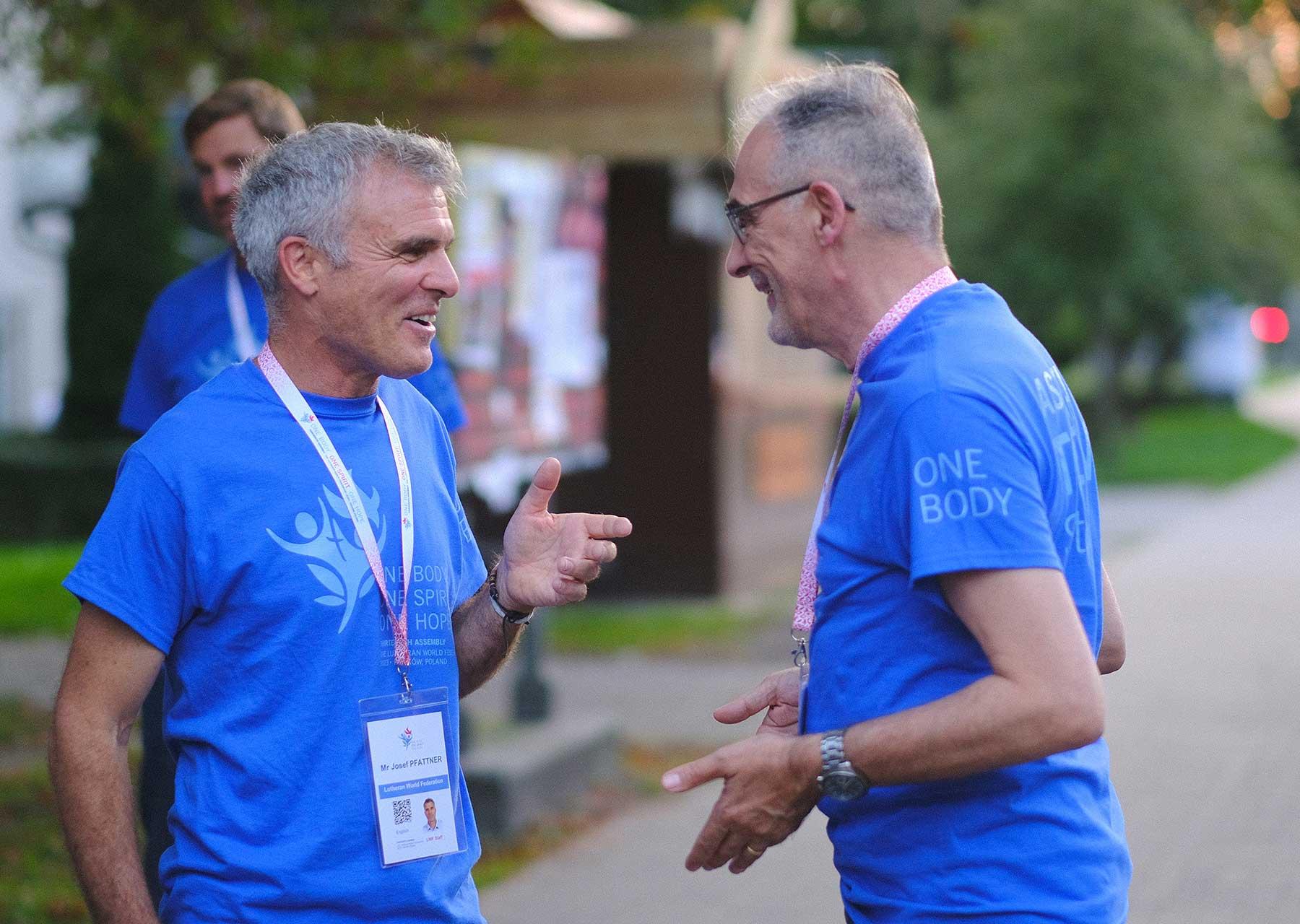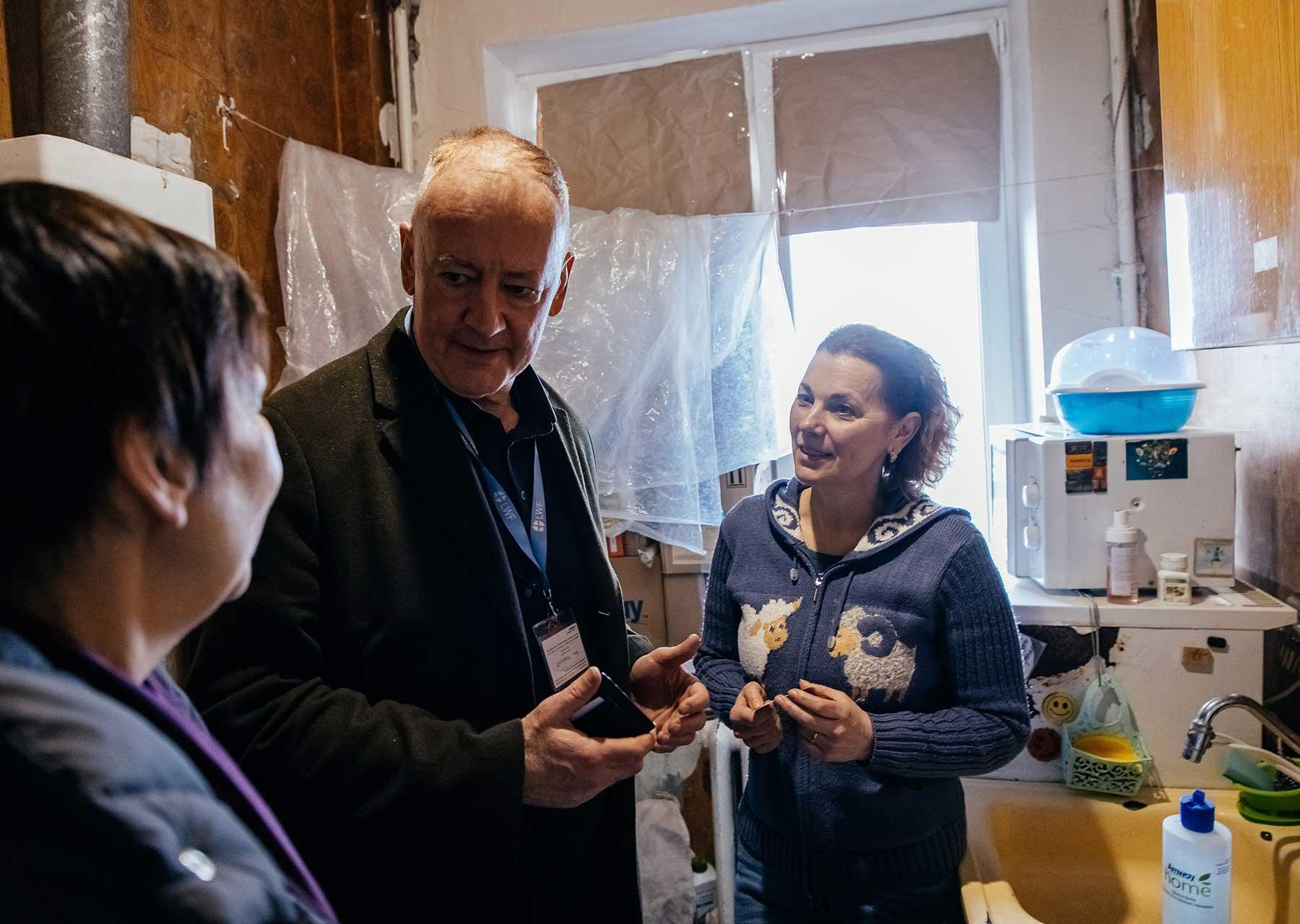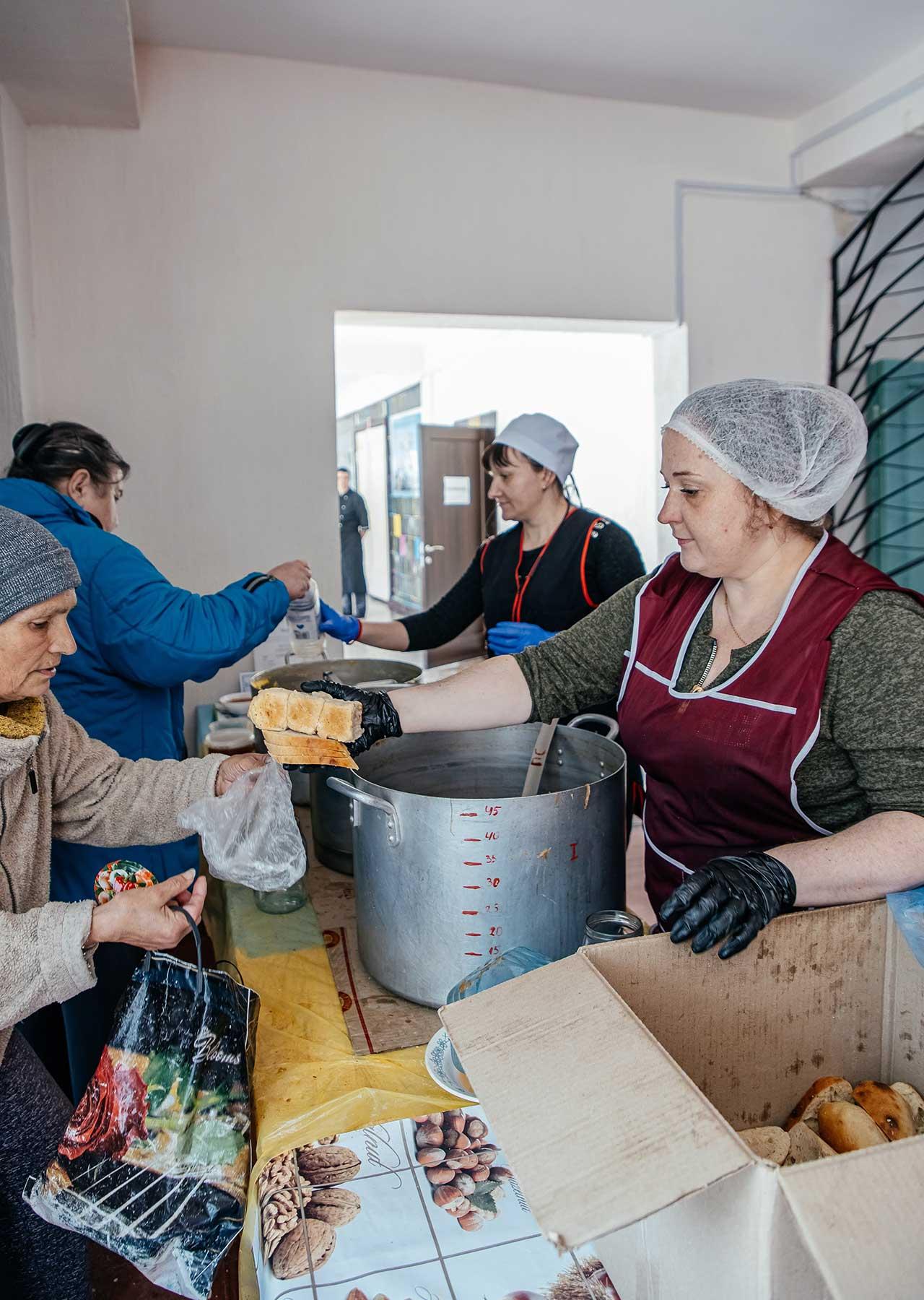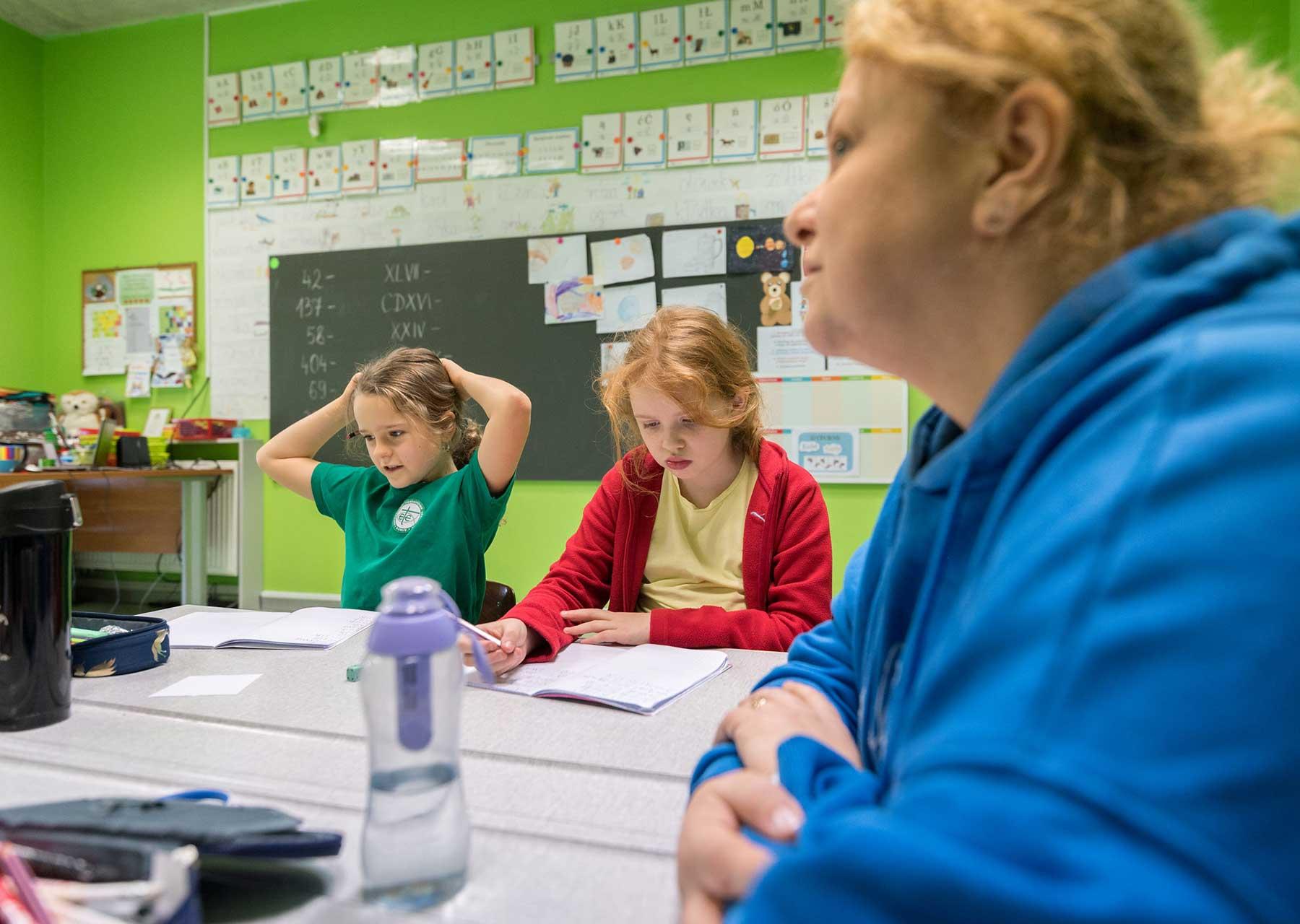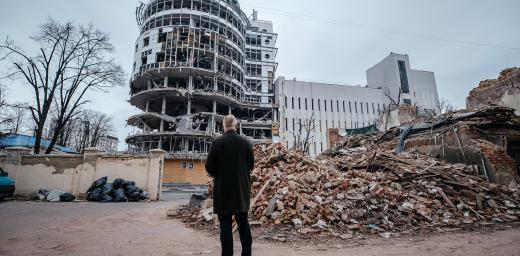Interview with LWF Ukraine Response Coordinator Josef Pfattner after two years of war in Ukraine
(LWI) - From supplying relief food and medicine to refugees across neighboring countries, to rehabilitating schools and setting up heating points in municipalities, The Lutheran World Federation (LWF) humanitarian response in Ukraine has expanded to rehabilitating family apartments, thanks to the sustained support of LWF’s global partners.
Josef Pfattner, coordinator of LWF’s response to the war in Ukraine, looks back at two years response to the war in Ukraine and explains why this assistance is still critical.
“After two years of war, part of society in Europe is getting used to having a war in Europe. However, that should not obscure the fact that millions of families are dramatically affected by the consequences of the invasion. Immediate needs include food, shelter, medical help including addressing trauma caused by the war,” he says.
Looking back to the beginning of the Ukraine war, how has the situation changed in the past two years?
Like most, we were caught off guard by Russia’s invasion on 24 February 2022 . In the beginning everything was unpredictable. We didn't know whether Ukraine would be overrun within a few days or how many people would flee. In the first few weeks we experienced overwhelming solidarity: not only did many non-governmental organizations get involved, but also churches, private individuals and families.
Initially many people had hoped that the war would end soon. It has now lasted two years. While the willingness to help is still exemplary, tolerance toward refugees is decreasing in some places. For people from Ukraine who have been living abroad for two years now, this also means that they have to make decisions about their future.
In what way?
Every family is in a different situation. We see people planning their future and that of their children abroad, and we see people still hoping to return next month. Many people now realize that they have to think long term. The war has separated many families, men and fathers are not allowed to leave Ukraine. In practice, many women have been single parents for two years, taking responsibility for their families.


